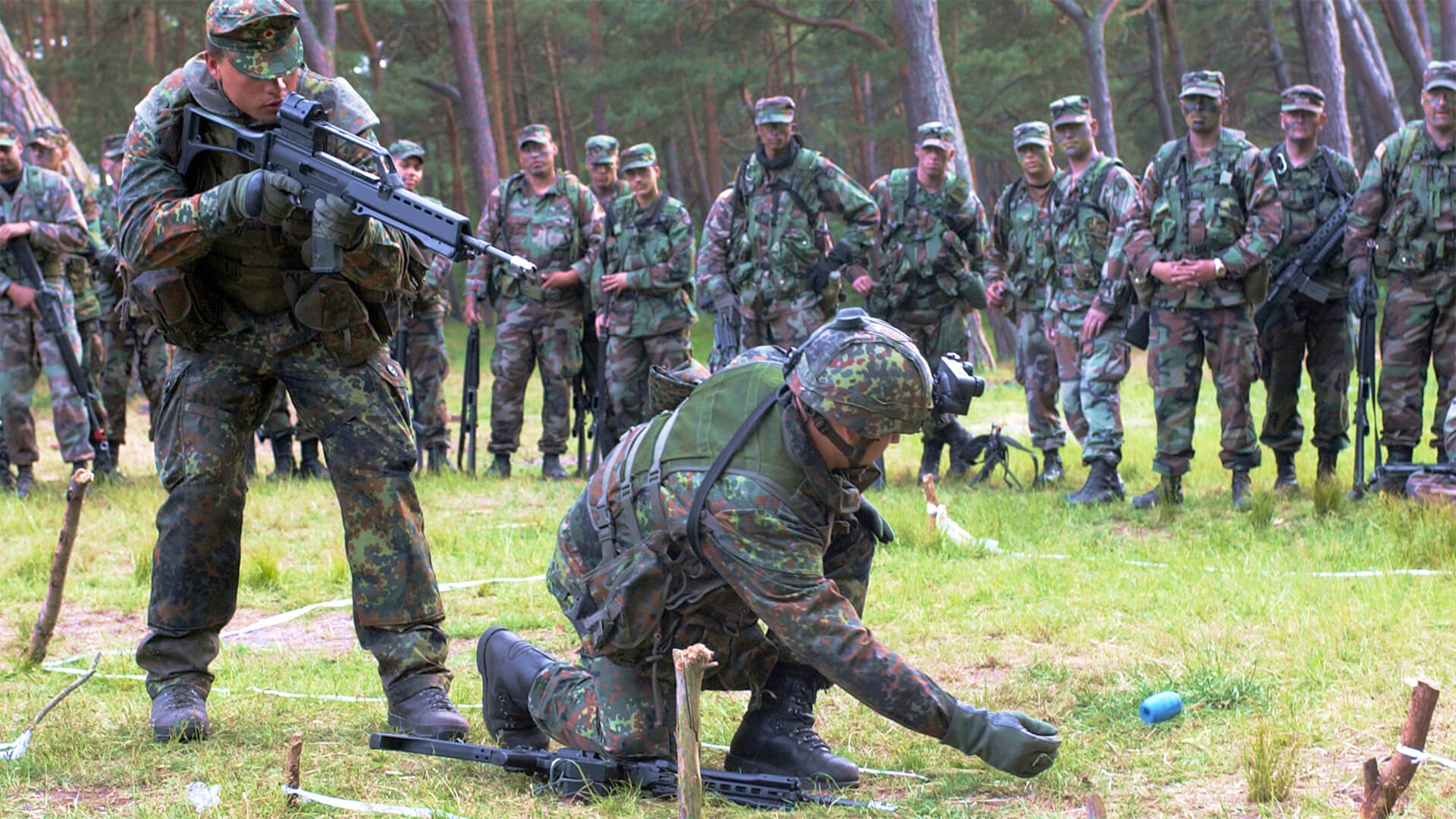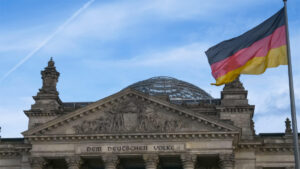UK subscribers can now order the ebook edition of THE END OF THE WORLD IS JUST THE BEGINNING for just £0.99 during Saturday’s Kindle Daily Deal on amazon.co.uk

In a departure from its post-WWII stance, Germany plans to establish a permanent military deployment in Lithuania. Looks like it might be time to bust out the caution tape…
Germany’s willingness to participate in security matters signifies a shift in military capabilities and idealogy. With mounting concerns over Russia’s attack on Ukraine, Germany’s renewed military posture could spell trouble for Putin’s master plan.
I would expect to see more and more European countries taking independent actions as the US steps back as a regional power. So, while it may not be a comfortable experience, it’s time to get used to Germany being back in the game.
Here at Zeihan On Geopolitics we select a single charity to sponsor. We have two criteria:
First, we look across the world and use our skill sets to identify where the needs are most acute. Second, we look for an institution with preexisting networks for both materials gathering and aid distribution. That way we know every cent of our donation is not simply going directly to where help is needed most, but our donations serve as a force multiplier for a system already in existence. Then we give what we can.
Today, our chosen charity is a group called Medshare, which provides emergency medical services to communities in need, with a very heavy emphasis on locations facing acute crises. Medshare operates right in the thick of it. Until future notice, every cent we earn from every book we sell in every format through every retailer is going to Medshare’s Ukraine fund.
And then there’s you.
Our newsletters and videologues are not only free, they will always be free. We also will never share your contact information with anyone. All we ask is that if you find one of our releases in any way useful, that you make a donation to Medshare. Over one third of Ukraine’s pre-war population has either been forced from their homes, kidnapped and shipped to Russia, or is trying to survive in occupied lands. This is our way to help who we can. Please, join us.
TranscripT
Hey, everyone. Peter Ziehan here. Coming to you from Colorado. A short one today, but that doesn’t mean that it’s not really, really, really important. The news is that the Germans are making a permanent military deployment to Lithuania. This is not part of a U.N. mission. This is not a rotating program. This is roughly 5000 troops that are being deployed to Lithuania as part of their naval commitments on a permanent basis.
Why is this important? Well, you’ve all heard of World War Two. The world has gone out of its way. The last 75 years to make sure that the Germans do not have a deployment capable military. They’ve been enmeshed within the NATO’s system, and the United States is largely underwritten German physical security. And the Germans have been security consumers.
Now, this has been a financial drain on the United States and some of the other allies and some people from time to time bitch about that. But the advantage of having Germany without a functional military, I cannot underline enough why that is important. Germany’s borders are broadly indefensible and it is surrounded by a series of countries that, while they may be allies, now historically have never been.
So we’re in this one beneficial moment in time where the United States has forcibly rewritten the rules of European security, and that has helped keep Europe united and at peace now for 75 years, especially in the post-Cold War era. But underlining that is that the Germans have agreed to never have an opinion on security matters. That now seems to be going by the wayside.
And the Germans are finally developing capabilities. Now, 5000 troops in Lithuania is not the end of the world, but it does mean the rehabilitation of Germany as a more normal country that has military tactics and strategies as part of the toolkit. Just like any other country. And because of that, the Germans will start having opinions on security issues.
Now, in the short term, this is a broadly good thing for the European alliance, because the most of the concerns are around Russia and Ukraine and everyone’s more or less on the same page there. But the Russians starting to pick up guns and do things with guns that other countries do. This reminds me of the last seven major wars that the Germans were in.
There was a period of disarmament if they lost and then it ended and the Germans started using military tactics again and stuff got real really, really fast. So are the Germans our enemies? No, not today. Will the Germans start to see the world a little bit differently? Oh, yeah. And has that ever ended well? Oh, no. The two biggest losers from this sort of transformation.
The first one is Poland. Poland is in the process of a massive rearmament program to make sure that it will never fall to Germany or to Russia again. And part of that is predicated on the idea that the Germans don’t shoot. So all of a sudden they’re going to actually have to pay a little bit more attention to the western border.
Even though the German deployment in Lithuania cannot function without hand-in-glove cooperation with the Polish government, this is something that no matter who you are in Poland, what’s the part of the political spectrum you’re in? You’re going to be a little nervous about this because you know your history. But the far bigger loser here is Russia. The Soviet system in the post Soviet Russian system have benefited from something very clear.
The Americans have been in charge of regional security. So you never had to worry about Sweden or Finland. Germany or France basically going off on their own as long as you could have a working relationship with Washington. The rest of it would be kept under control by Washington. That’s no longer the case with the Ukraine war. Even though it’s brought the alliance closer together, it’s forced a lot of the regional powers to take some certain amount of matters into their own hands.
And while NATO’s is certainly all reading from the same book when it comes to countering the Russians, no one’s on the same page and everyone’s taking their own independent action in order to counter Russian influence. For the most part, this is all going in the same direction, but I don’t know if I’d exactly call it coordinated. And for Germany, the largest economy in Europe, to start to develop the tools that allow it to do things, that’s ultimately Russia’s worst nightmare, because the country that has always given it the biggest run for its money in the modern era is Germany.
And now they’ve got tanks again.








